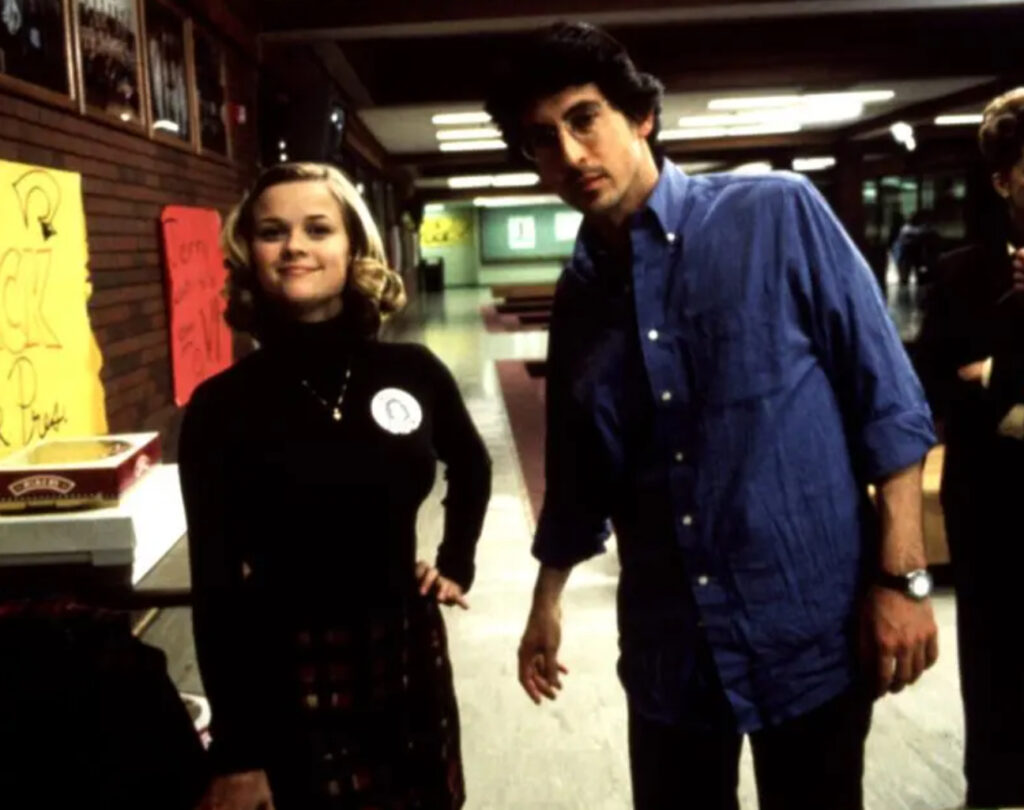
By 2025, we’ve rebooted nearly everything. But no one expected Tracy Flick to make a comeback. Then again, Tracy Flick never left.
When Alexander Payne and Reese Witherspoon announced their return to Election—the sharp, acidic 1999 political satire disguised as a high school comedy—it set off a cultural tremor. Not because sequels are rare (they’re not). Not because Witherspoon’s return to Tracy Flick is surprising (it’s genius). But because this story, this character, and this particular slice of Nebraska angst feel more relevant than ever.
Set to be one of the most iconic Nebraska-based sequels since the Children of the Corn franchise terrorized its way across the plains in the ‘90s and early 2000s, Election 2.0 offers something different: not horror in the traditional sense, but a deeper dread. The dread of failed potential, unrealized power, and the suffocating bureaucracy of modern ambition.
This isn’t just a sequel. It’s a reckoning—with Tracy Flick, with America, and with the systems that turn overachievers into also-rans.
Why Election Still Matters
Let’s rewind. In 1999, Election debuted to critical acclaim and modest box office returns. It was a high school movie that wasn’t really about high school. It was about democracy, manipulation, white male mediocrity, and female ambition—and how those forces grind against each other like tectonic plates under pastel lockers and pep rallies.
Reese Witherspoon’s Tracy Flick, relentlessly competent and coldly driven, was seen as both heroine and villain depending on the viewer. She was too much, too eager, too perfect. And her foil, Jim McAllister (Matthew Broderick), was the everyman pushed to a nervous breakdown trying to sabotage her. Their battle wasn’t really about a student council election—it was about how society punishes women who dare to want power without apology.
Sound familiar?
Now fast-forward to 2025. Tracy’s back. Older. Sharper. Still ambitious. But this time, she’s fighting from within the system, not just against it. The stakes? Higher. The tone? Meaner. The times? Absolutely begging for this story.
Tracy Flick in the Era of Burnout and Bureaucracy
The upcoming sequel, based on Tom Perrotta’s 2022 follow-up novel Tracy Flick Can’t Win, catches up with our favorite overachiever in middle age. She’s no longer a student—she’s a vice principal, professionally competent and personally stalled. She’s clawed her way to the middle and found it disappointing.
And that’s the dark genius of this next chapter: it’s not about climbing anymore. It’s about what happens when you do everything right and still don’t get the job.
Payne and Witherspoon have the perfect tools to dig into this existential deadlock. Tracy is no longer a threat to the system—she is the system, or at least its pawn. The ambition is still there, but now it’s worn down, resentful, surrounded by red tape, aging men, and institutional glass ceilings.
She’s Hillary Clinton with none of the power. She’s Leslie Knope without the optimism. She’s you, maybe.
Why Nebraska Still Matters
Setting matters in Payne’s work, and Nebraska has always been his narrative terrain. It’s not just a backdrop—it’s a character. A mythic middle-America full of decency, dullness, decay, and the occasional outburst of violence or absurdity.
In Election, the Omaha suburbs were a crucible for moral collapse under the guise of PTA respectability. In Election 2.0, the setting is still Nebraska, but it’s evolved—or rather, it hasn’t. The same school halls. The same frozen cafeteria burritos. The same hierarchy that favors charm over competence.
But now, Tracy’s watching younger versions of herself walk through those doors, and she’s stuck behind an administrator’s desk, being politely ignored. If the first Election was about breaking in, the sequel is about breaking down.
It’s Midwestern horror, not in the way Children of the Corn gave us possessed kids in cornfields, but in the way that ambition dies under fluorescent lights.
Sequel Culture and Why This One Isn’t Trash
Let’s be real: the cinematic landscape is clogged with sequels, spin-offs, reboots, and nostalgia cash-grabs. Most of them are lazy. Most of them are loud. Most of them forget what made the original work at all.
But Election 2.0 isn’t just a sequel—it’s a continuation. An evolution. It doesn’t want to replicate the first film’s energy. It wants to wrestle with what happens after that story ends, when the spark of youth fades and bureaucracy takes its place.
It’s not about recreating the 1999 movie beat-for-beat. It’s about putting a character we know in a system we now understand better—and watching her either burn it down or be swallowed by it.
In that sense, this isn’t Top Gun: Maverick. It’s Amadeus, if Salieri never left the public school system.
What Witherspoon and Payne Bring Now
Reese Witherspoon is no longer a rising star—she’s an empire. Since Election, she’s done prestige (Walk the Line), rom-coms (Legally Blonde), and power-producing (Big Little Lies). But Tracy Flick remains her definitive role, the one that weaponized likability and perfection into a threat.
Returning to that character, older and weathered, lets Witherspoon explore a new emotional register: regret. Anger. Suppressed fury. It’s not about proving herself. It’s about being overlooked, again, in a world she knows she could fix if someone would just let her.
And Alexander Payne? He’s still the master of the quietly devastating comedy. He paints in silence, awkwardness, and suppressed pain. His best films (About Schmidt, Nebraska, Sideways) are less about plot and more about people just trying to cope. In Tracy, he’s got a character built to break under that weight—and maybe fight back.
The Real Horror Show: American Meritocracy
Here’s the kicker: Tracy Flick’s story is not niche. It’s not just about Nebraska. It’s about all of us who bought into the myth that hard work equals reward. It’s about millennials and Gen Xers watching less competent men get promoted. It’s about burnout, bureaucracy, and how institutional sexism shapeshifts but never disappears.
And that’s where Election 2.0 earns its place—not as a nostalgic retread, but as a mirror held up to a system we’ve stopped believing in. Tracy Flick is still here. Still fighting. And still, somehow, losing.
Maybe she wins this time. Maybe she doesn’t. But watching her try, in a world that now feels built specifically to block her, might be the most honest political story of the year.
Closing the Loop
What makes Election 2.0 so exciting isn’t just that it’s happening. It’s that it’s happening now—when everything it once hinted at has come to pass. Tracy Flick was once an overachieving punchline. Now she’s a tragic archetype: The Woman Who Tried Too Hard.
And she’s about to try again.
Will she finally get her due? Or will she be passed over, again, by someone with a better smile and worse ideas?
The popcorn answer is in the sequel. The deeper answer is in the culture that made her necessary in the first place.
No comments yet.








